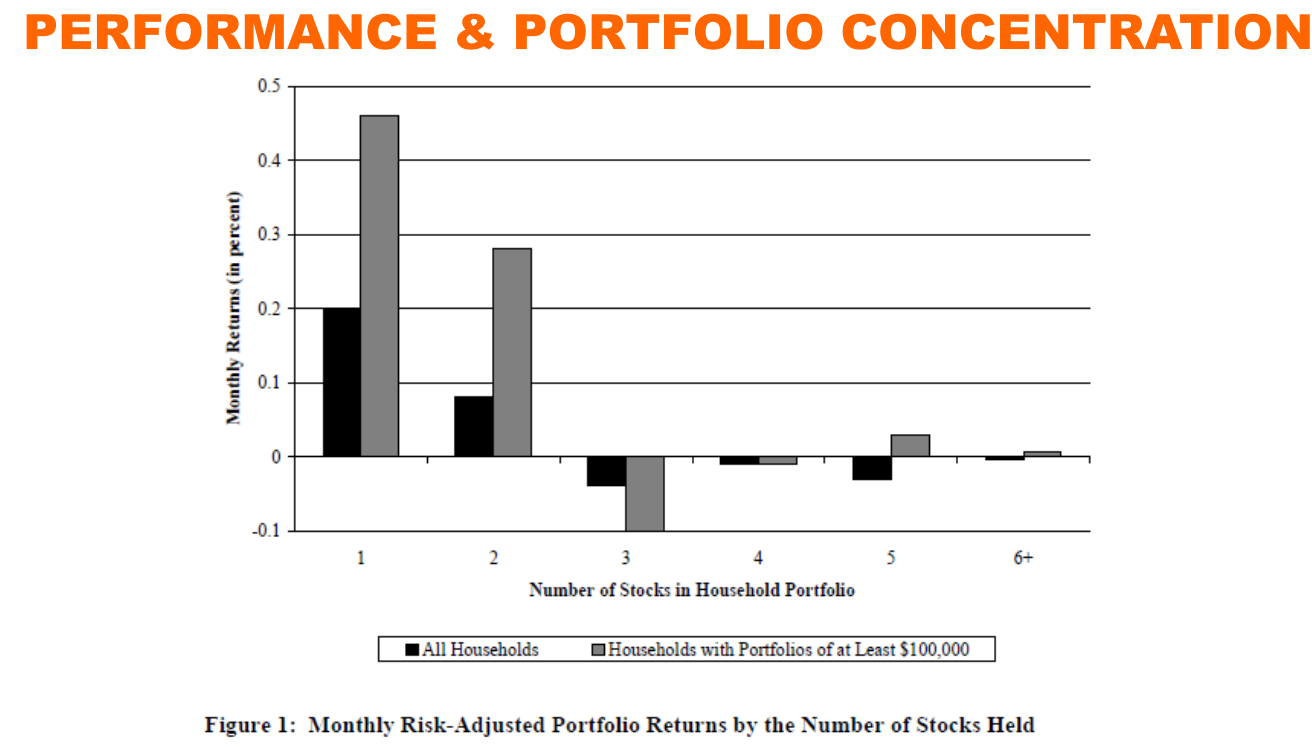Week 3 - Individual investors
-
Transaction cost:
- commission/fees to brokerage
- bid-ask spread:
- when buying, pay ask price
- when selling, pay bid price
-
overview of individual investor performance
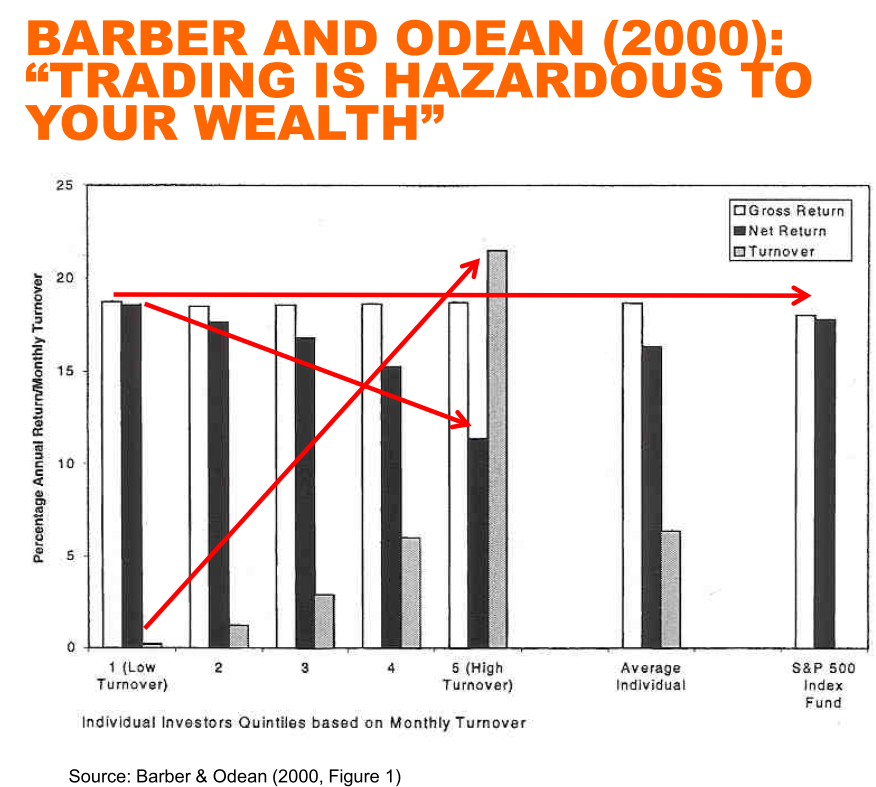
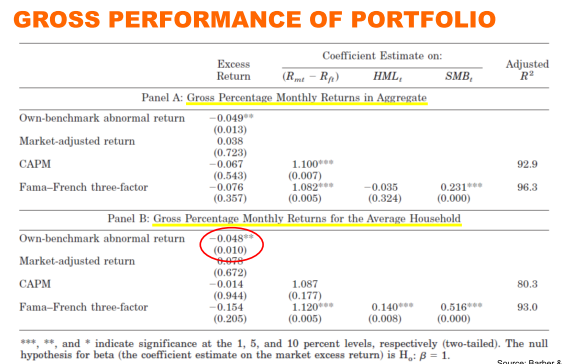
- in
()= p value. only stat. significant if < 0.05 - average household: benchmarked against simpling holding: no difference
- CAPM: no difference
- 3-factor - alpha also not stat. significant
- tilt towards value (positive coeff)
- tilt towards SMB (institutional tend to do more large stock) - which tends to have higher bid-ask spread -> more transaction cost
- in
- once taken into account of transaction cost, average household under perform against the benchmarks
-
loss aversion
- assymetry:
- tend to hold on to stock with losses (expected utility of selling is worse than holding)
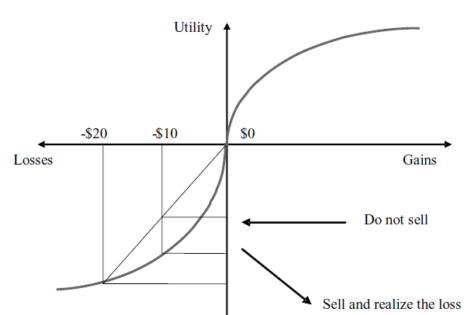
- tend to capture gains
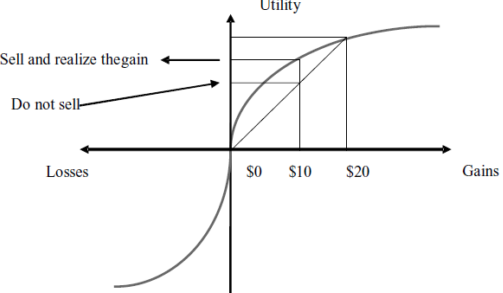
- tend to hold on to stock with losses (expected utility of selling is worse than holding)
- loss-aversion good or bad?
- go against momentum effects
- against tax incentives
- loss aversion effect is stronger in tax-deferred accounts (in regular accounts, the tax incentive reduces the loss aversion effect) - so tax motivation still matters
- personal connection to asset
- emotional connection: house
- Genesove and Mayer(2001):
- if house has fallen value since purchase:
- takes longer to sell
- effect 2x for owner-occupants
- if house has fallen value since purchase:
- having someone to blame affects trading
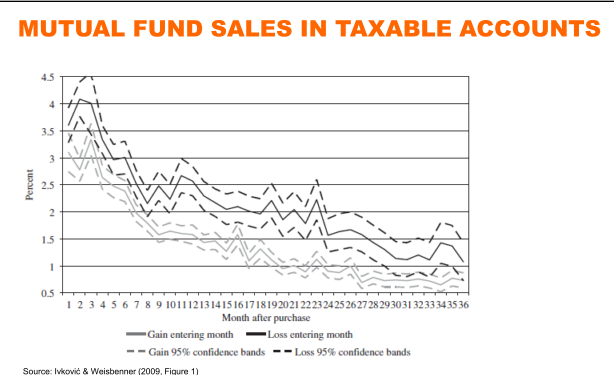
- effect is reversed for mutual funds - loss -> more likely to sell - tax effect more important, easy to blame the fund manager
- impact on corporate finance decisions
- firm acquisition:
- offer's chance of success jumps discontinously when offer price exceeds past 52-week peak
- equity issuance (sell stock to raise cash):
- influenced by the stock price when a CEO joined the firm -> suggest a firm with past poor stock return may need to fire current CEO if they wish to raise cash by selling equity
- firm acquisition:
- explanation for momentum?
- when the stock goes up with good news, the cashing-in effect dampens the initial price increase
- when stock goes down with bad news, the hold effect dampens initial drop
- Importance of endowment effect
- endowment effect:
- people given coffee mug and asked if they would trade it for chocolate. 89% keep the mug
- initially given chocolate, only 10% wants to trade it for mug
- given both choices at start, 56% choose mug
- tax witholding
- emotion on tax day: less upset with the witholding model
- benchmark: after-tax income
- credit card
- current vs future wealth
- annuities
- current wealth vs future consumption
- endowment effect:
- emotions and financial decisions
- are psychopaths best investors? - shiv, et al 2005
- factors:
- loss aversion: more likely to invest after losing last round
- house-money effect: more likely to invest after winning
- representatives: more likely to invest after winning
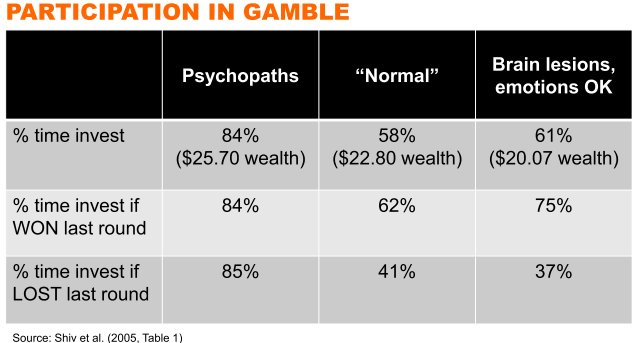
- factors:
- are psychopaths best investors? - shiv, et al 2005
- assymetry:
-
Skill of individual investors?
- local investments
- on average, household allocate 1/3 to local stocks (hq within 250 miles) vs 1/8 if spread evenly
- concentrated accounts with 1 or 2 stocks (especially wealthy households) seems to have better information than more diversified:
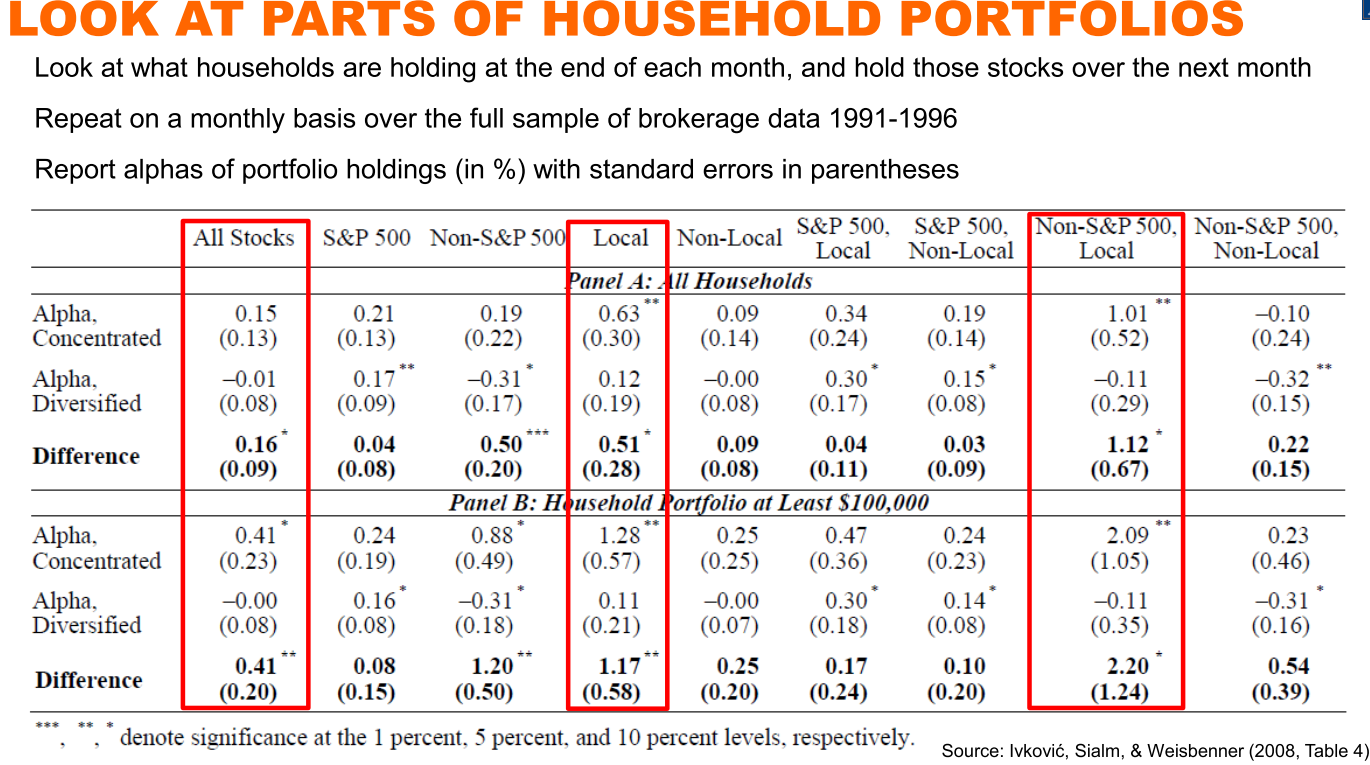
- various robustness tests
- after excluding stocks with certain characteristic, result still hold
- various robustness tests
- local investments
